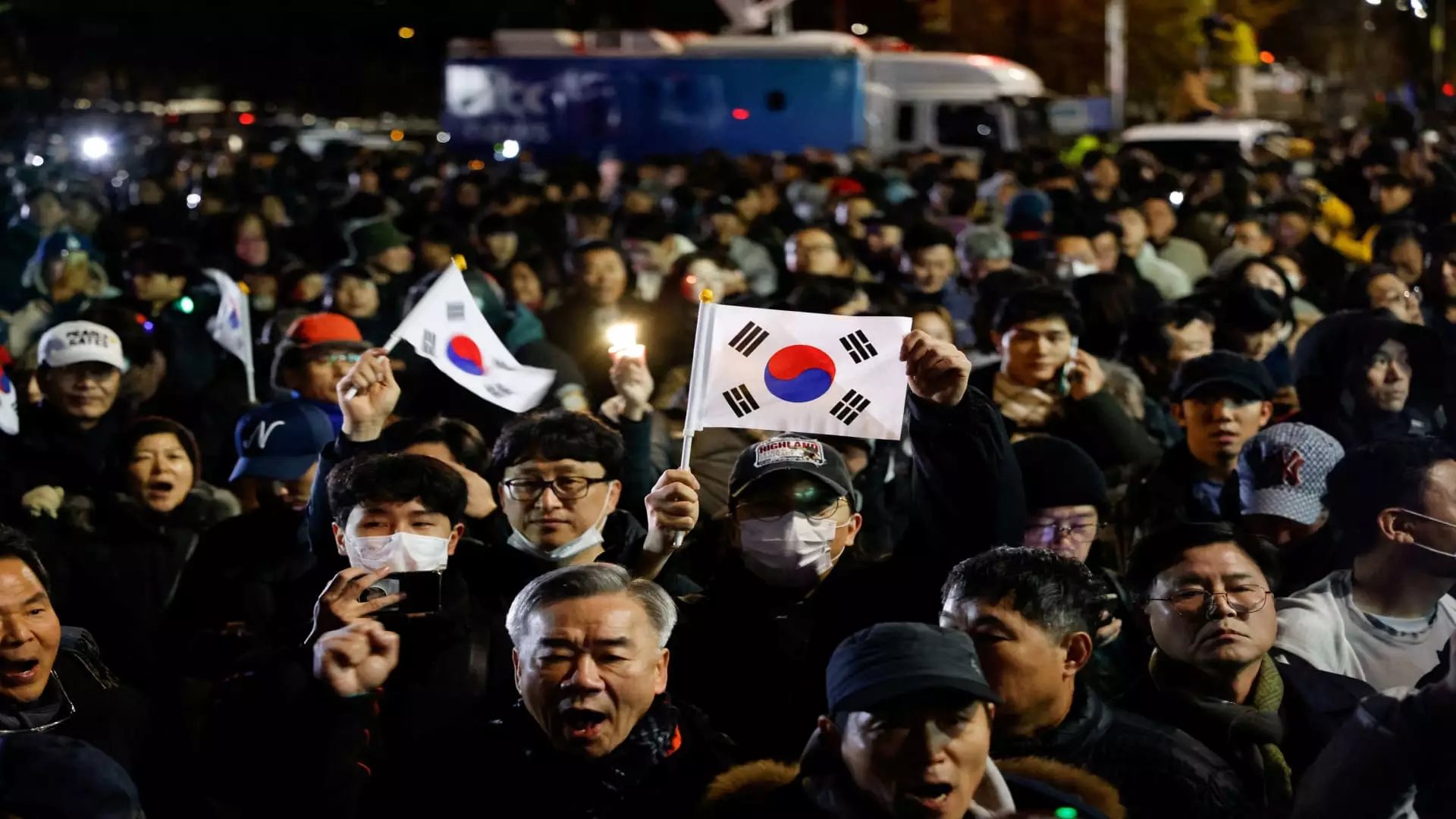On Wednesday, South Korea’s financial markets experienced significant declines as a direct consequence of a tumultuous political environment. The Kospi index plummeted by 1.8%, followed closely by the Kosdaq, which fell by 2.4%. This downturn followed a chaotic episode when President Yoon Suk Yeol imposed a martial law decree but swiftly rescinded it within hours. Such instability has prompted widespread unrest, exemplified by mounting protests and calls for Yoon’s resignation from opposition parties. In response, a coalition within the National Assembly is reportedly gearing up to introduce impeachment proceedings against the president, which could come to a vote within a pressing timeframe of 72 hours.
The day’s events have sparked serious concerns regarding South Korea’s financial stability. Witnessing the market drop, the Bank of Korea convened an emergency board meeting where it announced plans to enhance short-term liquidity and stabilize the foreign exchange market. Officials emphasized their readiness to provide special loans as necessary to inject capital into the financial system, demonstrating a proactive approach to mitigate the impacts of the political crisis. Furthermore, reports indicated that the country’s financial watchdog was prepared to allocate a considerable 10 trillion won ($7.07 billion) towards a stock market stabilization fund, a move aimed at soothing investor anxiety and reinstating confidence in the market.
The turbulence in South Korea has not only influenced local investors but has also reverberated across the Asia-Pacific region. Markets in Japan recorded slight declines, with the Nikkei 225 and Topix both falling by 0.4%. Conversely, Hong Kong’s Hang Seng index managed to navigate slightly higher by 0.1%, while the CSI 300 in Mainland China registered a 0.2% drop. Investors were also processing the recent GDP data from Australia, which revealed a lesser-than-anticipated growth rate in the third quarter due to ongoing inflationary pressures and high borrowing costs, subsequently causing the S&P/ASX 200 to close down by 0.38%.
The fallout from South Korea’s political upheaval was palpable in global markets, with South Korean stocks exhibiting extreme volatility. The iShares MSCI South Korea ETF, which tracks a plethora of large and mid-cap corporations in the nation, descended as much as 7% to record a distressing 52-week low. However, it managed to recuperate partially, concluding the day down 1.6%. In contrast, the U.S. markets presented a mixed bag as the S&P 500 and Nasdaq Composite both recorded small gains, while the Dow Jones Industrial Average lagged, experiencing a minor drop of 0.2%.
This situation in South Korea highlights the delicate balance between political stability and market confidence, underscoring how swiftly political turmoil can impact economic landscapes both domestically and internationally. As South Korean financial authorities implement measures to stabilize markets, all eyes remain on the unfolding political drama and its potential ramifications on the broader economic environment.


Leave a Reply